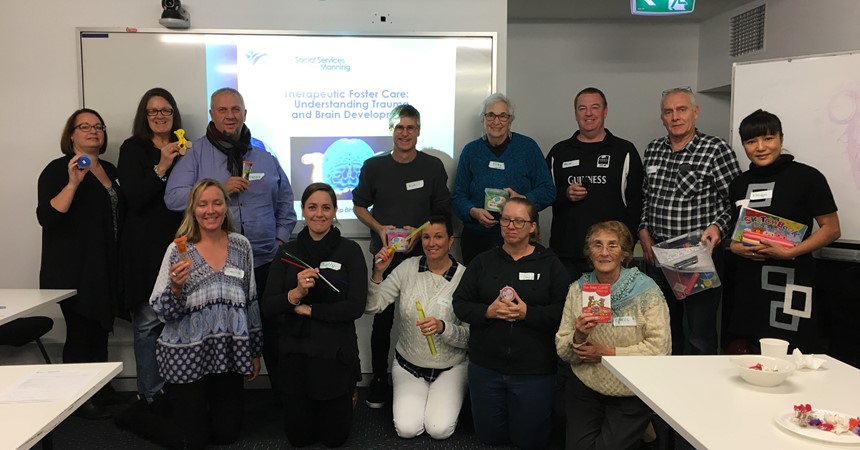There has been an abundance of research in recent years demonstrating the significant impact of trauma on the developing brain. Children who are in care are likely to have been impacted by trauma at some stage during their development. This means that their brain may function differently from children who have not experienced trauma. As a result, many children in care can experience a range of difficulties, including hyperactivity and attention problems, learning difficulties, aggression and problems with socialising, eating and sleeping.
When these difficulties are related to trauma, it is often the case that conventional parenting strategies can be ineffective. CatholicCare Social Services Hunter Manning’s psychologist, Phil Bird, is a member of the Clinical Services team which supports carers to learn targeted parenting techniques, collectively called ‘therapeutic parenting’.
“We find that ‘common sense’ parenting isn’t quite enough for children in care. In order to reach their full potential, they need to be supported to repair from their trauma. Therapeutic parenting is about meeting the child’s developmental needs, responding to emotional needs and providing a sense of physical and psychological safety,” said Phil.
“One of the main issues after trauma is that children operate out of their impulsive brain. They rely on ‘fight, flight or freeze’ behaviours. Children who have experienced early life trauma haven’t had their core needs met and we need to go back and meet these needs to help them reach their true potential.”
Recently, Phil hosted a Therapeutic Foster Care training session for carers, where he explained brain development in children and how this differs for those who have experienced trauma. Phil assisted carers to learn therapeutic techniques to help address behavioural issues that may arise.
Training and information sessions are just one part of CatholicCare’s support system for foster carers, which also includes placement support via home visits and over the phone assistance. The sessions, such as Therapeutic Foster Care, are aimed at upskilling carers and teaching practical strategies to support more effectively the child in their care. Another stream of support is the Sinergie program, where an early intervention parenting practitioner visits the family home at difficult times throughout the day, such as bedtime, and role models therapeutic parenting techniques.
When a carer needs extra support, the Clinical Services team begins by conducting a baseline assessment to determine which parts of the child’s brain have been impacted in development. From this, the team can tailor a holistic treatment plan, which not only involves assisting the carers to learn targeted techniques, but also the child’s teachers at school.
The special work that foster carers do goes far beyond providing a safe physical environment for the child, it also involves nurturing the child’s emotional and psychological needs. The job is by no means easy and it is important for the carer to be supported throughout the process. “It’s the who that do the most important therapeutic work. If we are to support the child, the carer is the most important person to be supported,” said Phil.
To learn more about CatholicCare’s training and information sessions and other carer events, P CatholicCare on 4979 1120, visit www.catholiccare.org.au or look out for upcoming events in the monthly Carer Newsletter.

